Scott Allard Interviewed on NPR about How Ballots are Rejected in Washington State
|
Over the last few years, CSDE Affiliates Scott Allard, Jake Grumbach, and colleagues have been conducting the Washington State Ballots Project through the Evans School of Public Policy & Governance at UW. The Evans Policy Innovation Collaborative (EPIC) has been working alongside the Secretary of State’s Office to explore voting practices in Washington State, trends and patterns of rejected mailed ballots, and more. Recently, Dr. Allard sat down with Libby Denkmann of KUOW, Seattle’s NPR news station, to discuss the question, “Nearly 99% of WA ballots are accepted, what's going on with the 1% that aren't?” Washington is a state that fully votes by mail, so when a ballot gets rejected it is not because of what was written inside, it is because of how the envelope was completed. Ballots have to be posted on time, stamped or dropped off at a ballot box before 8pm on election day. They also have to be signed and the signatures have to match what the state has on file. Allard’s team studied a state auditor’s report that examined the 2020 general election that focused on signature verification and mismatch. They found evidence that younger voters and voters of color were more likely to have their ballots rejected due to signature mismatches. The rest of the interview includes discussion of voting trends, the EPIC team’s study findings, how voters felt after their ballots were rejected due to signature challenges, tips on how to not have your ballot rejected, and more. Visit the link to listen to the entire interview.
(read more)
|
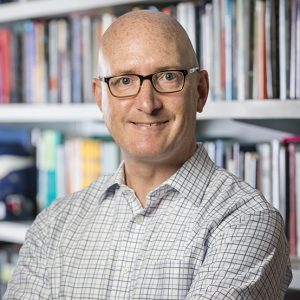 |
Win Brown Co-Authors Article in The Conversation Discussing the Pronatalist Movement
|
Many countries around the world have been faced with shrinking populations, resulting in major economies attempting to engineer higher birth rates. This practice is called pronatalism. It is a practice that encourages the bearing of children through government support and incentives to bear children. Those who push this practice often are those who fear that falling birth rates in developed countries will lead to the extinction of cultures, a crash of economies, and the collapse of civilization. CSDE Affiliate Win Brown and his co-author Emily Klancher Merchant discuss in the article, “The problem with pronatalism: Pushing baby booms to boost economic growth amounts to a Ponzi scheme,” how it is notoriously hard to change birth rates, a new pronatalist movement, how pronatalism can be seen as a Ponzi scheme, government intervention in reproduction, and more. Read the article to learn more about the pronatalist movement.
(read more)
|
 |
Crystal Hall and Co-authors Publish in Behavioral Science & Policy on How Academics and Policymakers Can Collaborate Effectively
|
CSDE Affiliate Crystal Hall and co-authors published the research article, “How academics and policymakers can collaborate effectively: Lessons from using behavioral science to improve U.S. federal government policies,” in Behavioral Science & Policy published by Sage Journals. Various public programs and services are administered by the U.S. government. Creating these programs requires an understanding of the psychological processes that influence behavior. The authors of this article state that, “policymakers may collaborate with academics who have expertise in behavioral science to generate ideas for improving existing programs, procedures, or policies; to test existing programs; or to design wholly new programs that address societal problems. Such collaborations also enable academics to test new or established theories in real-world settings.” In this article, the authors draw on their collective experience in the U.S. Office of Evaluation Sciences where they studied federal programs to outline the core issues that make research collaborations between academics and policymakers challenging. They also offer advice on how to make these partnerships productive and beneficial.
(read more)
|
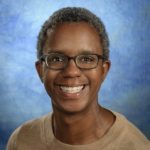 |
Former Evans Visiting Scholar and CSDE Affiliate Ann Bostrom Co-Author Research Article in Energy Research & Social Science
|
CSDE Affiliate Ann Bostrom and Former Evans Visiting Scholar Daniel Sloot published a research article in Energy Research & Social Science titled, “The role of framing in public support for direct air capture: A moral hazard survey experiment in the United States.” Dr. Sloot and Dr. Bostrom explain that the key to limiting global warming will likely require “removing carbon dioxide from the atmosphere and keeping it out of the atmosphere by sequestering it.” There is a crucial need for public support for the rapid upscaling of carbon removal and sequestration. However, there has been a concern that public support for these negative emissions technologies (NETs) will be impeded by the moral hazard that these NETs could compromise mitigation efforts and therefore should be avoided. Building on previous research, Sloot and Bostrom investigate the effects of four novel ways of framing the use of direct air capture (DAC), a form of carbon removal from the atmosphere that is currently of broad interest. Findings suggest concern about moral hazard is overrated. Read the rest of their article to learn more.
(read more)
|
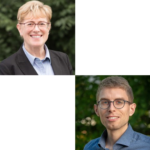 |
NPR's KUOW Interviews Cohen on Seattle’s Property Tax Levy
|
With the upcoming general election approaching, KUOW, Seattle’s NPR Station, sat down and talked with professionals to talk about the fact that, “Seattle voters will decide on the biggest property tax measure in the city’s history, the $1.5 billion transportation levy.” In the article, “When it comes to Seattle’s property tax levy, renters are not immune,” they describe how the levy would fund bridge repairs and bus lanes, and the fate of this may hinge on the composition of the city’s homeowners and renters. Within Seattle, the population is made up of 55% renters and 45% homeowners, groups that tend to vote differently when it comes to property tax increases. Renters are more likely to approve property tax increases while homeowners are more likely to disapprove of the levy. What is the reasoning behind this? One answer is salience. CSDE Affiliate Isabelle Cohen, an economist who studies taxes, states that, “salience is the idea [that] you’re more aware of some taxes than others. If you’re a homeowner, you’re getting that bill from the county and you’re sort of saying, ‘Wow, this is what I’m paying.” Those who have paid off their mortgages are more aware of property taxes and renters are generally less aware of how property taxes are impacting their monthly rent. Dr. Cohen discusses the individual impacts on renters and homeowners, explains salience, and more. Read the rest of the article to learn more about the upcoming property tax vote.
(read more)
|
 |
Casey Quoted in LA Times on How Wildfire Smoke Raises Dementia Risk More Than Other Pollutants
|
CSDE Affiliate Joan Casey was recently quoted in the Los Angeles Times Article, “Wildfire smoke raises dementia risk more than other pollutants.” According to a landmark study of more than 1.2 million Californians, exposure to wildfire smoke increases the odds of being diagnosed with dementia more than other forms of air pollutants. These findings have large health implications, especially in western states where air pollution produced by wildfires now accounts for up to half of all fine-particle pollution. Researchers looked at a type of particulate-matter pollution called PM 2.5 which is 30 times smaller than the width of human hair and is small enough, “to penetrate deeply into the lungs and cross over into the bloodstream, where they can cause inflammation.” Exposure to these particles have shown to increase the risk of dementia and various other conditions like heart disease, low birth weight, and asthma. Dr. Casey states that “we increasingly see that PM 2.5 is tied to virtually every health outcome we look at.” Dr. Casey and collaborators analyzed the health records of more than 1.2 million Kaiser Permanente Southern California members who are 60 or older between the years of 2009 and 2019. This article covers work presented at the annual Alzheimer’s Association International Conference 2024 (AAIC) in Philadelphia and is currently under review, visit the link to read more about this research.
(read more)
|
 |
Delaney Glass and Colleagues Publish in Special Issue of Psychoneuroendocrinology
|
CSDE external affiliate and former CSDE T32 Fellow Delaney Glass and her colleagues at the University of Massachusetts-Boston published an article in the special issue “Biology, conflict, and mental health: understanding the physiology and trauma of forced migration” in the journal Psychoneuroendocrinology. Their paper “Coming of age in war: Early life adversity, age at menarche, and mental health” reviews the empirical evidence regarding exposures to armed conflict and forced migration and timing of puberty. They also discuss mental health implications and the ethics of working with conflict-affected youth populations.
(read more)
|
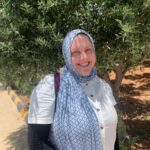 |
NBC News Interviews Anthony Bui on Recently Published Study in JAMA Pediatrics
|
CSDE Affiliate Anthony L. Bui was recently interviewed by NBC News on his recently published study, “Disaggregated Suicide Mortality Rates Among Asian American Youths and Young Adults by Ethnic Subgroup,” in JAMA Pediatrics. In this interview, Dr. Bui, who is a pediatrician and investigator at the UW School of Medicine and Seattle Children’s, discusses why, more Asian young people are dying by suicide — and some subgroups are faring worse than others. Suicide has become the leading cause of death for Asian American youth. “Certain Asian American minorities and Pacific Islander groups fare even worse, [and] Vietnamese American youth face a particularly high risk.” While at surface level, Asian American suicide rates seem to be lower when compared to other groups, lumping all Asian American groups together doesn’t paint the whole picture, says Dr. Bui. In his study published in JAMA Pediatrics, Dr. Bui examined the suicide rates of Asian American youth (aged 15-19) and young adults (aged 20-24) between 2018 and 2022. Visit the NBC News interview and the research study in JAMA Pediatrics to learn more about Dr. Bui’s findings.
(read more)
|
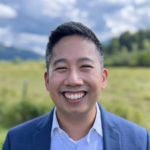 |
|
|
Call for papers: Special Issue of China Population and Development Studies (Due 8/31/24)
|
China Population and Development Studies (CPDS) is a Springer published flagship English scholarly peer-reviewed international journal and hosted by China Population and Development Research Center; CPDS addresses a broad range of topics related to population and development internationally (https://www.springer.com/journal/42379). CPDS announces a call for submissions of papers for a special issue that address “Projections/analyses of Households and Living Arrangements, and Applications in Healthy Aging and Sustainable Development Studies”.
(read more)
|
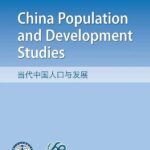 |
*New* Register for Population Reference Bureau Webinar – Where is the Workforce?: Understanding the U.S. Labor Shortage and Working Towards Solutions (9/5/24)
|
The United States and countries around the world are facing persistent labor shortages, limiting businesses both large and small and spanning all industries. What’s driving these shortages, and what can be done to address them?
As we observe Labor Day in the United States, join Population Reference Bureau (PRB), the Critical Labor Coalition, and special guest former U.S. Secretary of Labor R. Alexander Acosta to discuss the latest data behind the shrinking workforce and explore potential policy solutions.
Thursday, September 5th, 12:00pm-1:00pm EDT
Register here
(read more)
|
 |
Ending Human Trafficking in an Era of Globalization Conference, UW Women’s Center (9/5/24)
|
The Ending Human Trafficking in an Era of Globalization International conference will be held on September 5th, 2024 at the University of Washington’s Intellectual House. Keynote and panel topics will cover some of the anti-human trafficking movement’s most pressing modern problems and will be conducive to policy development on the domestic and international scale. Topics will include digital & artificial intelligence in relation to human trafficking, forced migration, climate change, vulnerable populations, and healthcare. Register here.
(read more)
|
 |
*New* Mathematica study seeking volunteers for project on reporting metrics for usage of federal assets: Data Usage Platform usability testing (9/9/24-9/16/24)
|
About the project: We are working on a project for the National Center on Science and Engineering Statistics (NCSES), a principal statistical agency within the U.S. National Science Foundation (NSF). Our project aims to investigate how—and to what extent— various federal data assets like data files, tables, and tools are created and used in academic research, state program evaluations, data journalism, and other contexts. As part of this effort, we will be developing a prototype Data Usage Platform (DUP) to better understand the uses of federal data. The DUP will (1) search for references to federal datasets used in published research, articles, and other reports, (2) calculate usage statistics to help us better understand how—and to what extent—agency datasets are currently being leveraged, and (3) display this information through an interactive dashboard and other tools.
Request for input: The usability testing will be conducted by videoconference. The input you provide in this meeting will inform our decisions on a new Data Usage Platform solution. Participating in the usability testing will not require any preparation and we will ask you questions about the DUP platform wireframes that we will display. Your participation is voluntary, and you can decline to participate or to answer any questions. All information you provide will be kept confidential. We will record the usability testing for note-taking purposes, if given your permission. These recordings will be deleted once the session has been fully transcribed. The usability testing would happen within the next few weeks, at a time convenient for your schedule.
Interested parties can contact Aivo Kivi at AKivi@mathematica-mpr.com.
(read more)
|
 |
Opportunity: Pilot Funding from NYU Collaborative Center in Children’s Environmental Health Research and Translation (LOIs Due 9/12/24)
|
The NYU Collaborative Center in Children’s Environmental Health Research and Translation (CEHRT) announced their fourth Pilot Project Request for Applications.
The goal of the Center is to translate existing knowledge to action on issues that affect children’s health. The themes of the Center are endocrine disruption and climate change, although we welcome proposals from other areas as well. The intent of the Center is to support the broader children’s environmental health (CEH) community — applications from NYU and outside institutions are encouraged. The Center will award developmental and translational grants, the former being smaller in size and extendable, and the latter focused on the translation of knowledge to action.
Application Process:
- Applicants submit a 1-page Letter of Intent (LOI) by Thursday, September 12th, 2024.
- Applicants selected to proceed into the next stage will be notified of this decision by Friday, September 20th, 2024.
- Applicants will be invited to submit a 3-page proposal due Wednesday, October 23rd, 2024 containing additional information to that already included in the LOI
Request for Applications PDF: CEHRT Cycle 4 RFA (2)
Link to Apply: CEHRT 2025 Letter of Interest Form (nyumc.org)
(read more)
|
 |
Opportunity for Funding: Transformative Research in the Education Sciences Grants (9/12/24)
|
Through the Transformative Research program, IES seeks to support innovative research that has the potential to make dramatic advances towards solving seemingly intractable problems and challenges in the education field and/or to accelerate the pace of conducting education research to facilitate major breakthroughs. For FY2025, the Transformative Research in the Education Sciences Grants program will focus on accelerating learning and reducing persistent education inequities by leveraging evidence-based principles from the learning sciences coupled with advanced technology to create high-reward, scalable technology solutions. Applications are due September 12, 2024. For more information about this research opportunity and the application process, visit the IES Funding Opportunities web page. IES will provide virtual office hours for this new competition. Please see the Virtual Technical Assistance web page for additional details.
(read more)
|
 |
Call for Papers on Immigration and Families: Examining the Causes, Processes, and Consequences of Migration (Due 9/14/24)
|
Contemporary Perspectives in Family Research, a series which focuses upon cuttingedge topics in family research around the globe, is seeking manuscript submissions for a special volume. The theme of the volume is: ‘Immigration and Families: Examining the Causes, Processes, and Consequences of Migration. The deadline for submissions is September 15, 2024. Direct all questions to the editors: Josip.obradovic@gmail.com and slblair@buffalo.edu. Authors are encouraged to submit a brief abstract prior to the manuscript deadline. See the full call for papers here.
(read more)
|
 |
International Union for the Scientific Study of Population (IUSSP) 30th International Population Conference 13th-18th July, 2025 in Brisbane, Australia (Abstract Submission Due 9/15/2024)
|
The IUSSP International Population Conference is the world’s largest international scientific conference on population issues. First organized in 1927 and held every four years since 1959, the conference brings together over 2,000 scientists, policymakers and practitioners from around the globe to present and discuss the latest research on contemporary population and development issues.
At the invitation of the Australian Population Association, the 30th International Population Conference (IPC2025) will take place in Brisbane, Australia at the Brisbane Convention and Exhibition Centre (BCEC) from 13 to 18 July 2025. IPC 2025 will be an in-person conference. The Conference will include over 800 oral presentations and up to 1,000 posters selected from research submitted to the Call for Papers. There will also be plenary sessions, debates and invited panel discussions featuring leading experts in the field, as well as training workshops, exhibits and side meetings occurring both before and during the Conference.
The scientific program of the Conference will be created from abstracts submitted to the Call for Papers by the submission deadline of 15 September 2024. All abstracts must be submitted online via the IPC2025 website, which is scheduled to open for submissions on 1 May 2024. Always check the IPC2025 Conference website https://ipc2025.iussp.org/ for updates.
(read more)
|
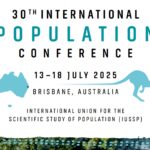 |
Call for Papers: 14th Alpine Population Conference – 12-15 January, 2025, Aosta Valley, Italy (Due 9/23/2024)
|
Alp-Pop brings together scholars interested in population issues across several disciplines, including demography, economics, epidemiology, political science, sociology and psychology. The conference emphasizes empirical rigor and innovation over a given topic or geographical area, and meets the challenges of interdisciplinary and international
audiences.
Alp-Pop scholars confer both formally and informally. A traditional conference program (paper and poster presentations) mixes with group activities in a world-class winter resort. The conference location, the Hotel Planibel in La Thuile (Aosta Valley), is next to the ski-slopes, and is in close proximity to the airports of Geneva and Torino/Milano.
Please submit your paper here.
Communication of the acceptance of papers will take place by mid-October. The deadline for submission of original papers or extended abstracts is 23 September 2024.
(read more)
|
 |
Workshop on Bayesian Methods in the Social Sciences (Register by 9/27/24)
|
The French Institute of Mathematics for Planet Earth and the Social and Behavioral Data Science Centre of the University of Amsterdam will be hosting its second workshop on Bayesian Methods. This three-day workshop will take place at the University of Amsterdam, on October 16-18th of 2024. The event will gather statisticians, mathematicians and social scientists around the theme of Bayesian statistical methods for the social sciences. This area has been growing rapidly in the past decade, and the speakers will include some of the leading researchers in the area from around the world. Register by September 27th. Learn more here!
It is the second edition of the workshop. The first edition was held in Paris in October 2022 and was a great success.
The first day of the workshop, 16 October 2024, will consist of introductory tutorial sessions. Days 2 and 3 will consist of talks and posters on cutting-edge research in the area.
(read more)
|
 |
*New* UW Department of Psychiatry and Behavioral Sciences Symposium – Innovations in Addressing Substance Use and Addiction: Improving the Lives of Individuals, Families, and Communities in the Pacific Northwest (9/30/24)
|
The UW Department of Psychiatry and Behavioral Sciences invites you to Innovations in Addressing Substance Use and Addiction: Improving the Lives of Individuals, Families and Communities in the Pacific Northwest on September 30 from 9 AM – 4 PM in the University of Washington’s HUB Ballroom.
Please join for this one-day event showcasing the department’s efforts to tackle our region’s challenges with addiction and substance use disorders. Attendees will interact with addiction researchers, educators and clinicians during a full day of events including featured speakers, interactive booths and an afternoon of roundtable workshops. Register below to attend as a guest or exhibitor.
Highlights will include
- Opening remarks from Department Chair Jürgen Unützer, MD, MPH
- Policymaker panel discussion
- Continental breakfast and a light lunch
- Interactive tables with clinicians, researchers, and educators
- Q&A with UW faculty
- Round table workshops to develop ideas and plan for the future
Register here
(read more)
|
 |
Call for Abstracts – 24th EWC International Graduate Student Conference on the Asia-Pacific, February 13-16, 2025, Honolulu, Hawai’i (Submission Due 9/30/24)
|
24th Annual International Graduate Student Conference
East-West Center
Honolulu, Hawaiʻi | February 13-16, 2025
Call for Abstracts
The East-West Center International Graduate Student Conference (IGSC) is accepting abstracts from current graduate students, as well as from young professionals and scholars, who have completed a graduate degree within the past three years. One of the largest student conferences focused on the Asia Pacific region, we are looking for submissions from all fields of study. This year's theme is Our Unique Planet: Navigating Our Shared Future.
Abstract submissions
All abstract submissions must be made through the secure Submittable online platform. The deadline to submit abstracts is September 30th, 2024, 23:59 hrs (Hawaiʻi Standard Time). Please see the conference website for Frequently Asked Questions on abstract guidelines, conference registration, and other logistics. For any other questions not covered in Frequently Asked Questions, please send your inquiry to the IGSC team at igsc@eastwestcenter.org.
(read more)
|
 |
*New* Call for Papers: Demographic Change and Challenges in the Americas – Canadian Studies in Population (10/15/24)
|
Special issue of Canadian Studies in Population on “Demographic Change and Challenges in the Americas”
- Deadline for submissions: 15 October 2024
This special issue of Canadian Studies in Population will spotlight key demographic concerns facing the Americas, including migration, mortality and morbidity, fertility, and family dynamics, and provide a forward-looking introduction that sets an agenda for a more integrated approach to understanding demographic change in the region. We seek papers that address demographic processes in the Americas, broadly defined, from Canada to Patagonia.
Please read the full Call for Papers online
(read more)
|
 |
*New* Fulbright Association: The World at a Crossroads 47th Annual Conference – October 25-26, Washington D.C., November 8-9, Virtual
|
The Fulbright Association will be holding the World at a Crossroads 47th Annual Conference both in-person and online. October 25th-26th in Washington D.C. and November 8th-9th virtually.
CSDE External Affiliate David Swanson will be presenting the paper he co-authored with Rich Verdugo titled, “Population Aging in the Western Hemisphere: 2020 to 2050” in the virtual session on Friday, November 8th.
Session Title: Population Aging in the Western Hemisphere: 2020 to 2050 (SESS-4)
Session Date: Friday, November 8, 2024
Session Time: 2:15:00 PM - 3:00:00 PM Eastern Standard Time (EST)
Session Format: Presentation - Live Zoom Style
Focus Area: Security and Diplomacy
Visit the link to find out more about the event: Fulbright Conference | Annual Conference for Fulbright Alumni and Friends
(read more)
|
 |
*New* Read the Newest Population and Development Review Supplement from Population Council – Pandemic Babied: The COVID-19 Pandemic and Its Impact on Fertility and Family Dynamics
|
Four years after the pandemic began, “pandemic babies” have grown into toddlers and preschoolers. What insights have we gained about the pandemic’s impact on fertility dynamics? Visit the link to learn the authors’ conclusions based on the evidence presented in the latest Population and Development Review (PDR) supplement and the wider literature field.
(read more)
|
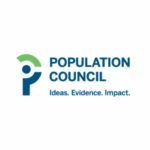 |
CSDE Population Research Planning Grants (PRPGs) (Rolling deadline)
|
Population Research Planning Grants (PRPGs) are designed to provide in-kind support and/or funds of up to $25k* to support a wide array of activity types throughout the development of a research project. As part of our mission to complement rather than duplicate other campus opportunities such as the Population Health Initiative seed grants, we will consider funding things activities such as:
(read more)
|
 |
CSDE Matching Support to Supplement On-campus Funding (Rolling deadline)
|
CSDE Matching Support includes in-kind or monetary support to accompany a submission to other on-campus funding mechanism, such as PHI, EarthLab, or Urban@UW. All projects must have a CSDE affiliate who is UW faculty and is listed as a PI or co-PI, with any number of other collaborators. Note that we require (PRPGs) or strongly suggest (matching funds) contacting either Development Core Director (Steven Goodreau) or CSDE Director (Sara Curran) to discuss possibilities for your specific proposal before submission.
(read more)
|
 |
NSF: Proposals Impacting Tribal Nation Resources & Interests
|
As of 5/20/2024, NSF proposals that may impact the resources or interests of a federally recognized Tribal Nation will not be awarded by NSF without prior written approval from the official(s) designated by the relevant Tribal Nation(s).
Proposers must:
- Seek guidance from the potentially impacted Tribal Nation on activities that require review and prior approval from that Tribal Nation’s authorized designee.
- Submit a written request to the relevant Tribal Nation (based on their guidance), for approval to carry out the proposed activity that requires their review and approval.
- Complete the checkbox for “Potential Impacts on Tribal Nations” on the Cover Sheet. Note, lead organizations are responsible for this on collaborative proposals & proposals with subawards considered a single unified project.
- Upload one of the following into "Other supplementary documents" of Research.gov:
- a copy of the written request to the relevant Tribal Nation to carry out any proposed activity/activities that may require prior approval from them
- written confirmation from the Tribal Nation(s) that review and approval is not required
- a copy of relevant Tribal Nation approval
(read more)
|
 |
Overview of Grant Application and Review Changes for Due Dates on or after January 25, 2025
|
This notice provides the research and research training community an overview of application and peer review changes impacting grant applications submitted for due dates on or after January 25, 2025, including:
- Simplified Review Framework for Most Research Project Grant Applications
- Revisions to the NIH Fellowship Application and Review Process
- Updates to Reference Letter Guidance
- Updates to NRSA Training Grant Applications
- Updated Application Forms (FORMS-I)
- Common Forms for Biographical Sketch and Current and Pending (Other) Support
(read more)
|
 |
|
|

